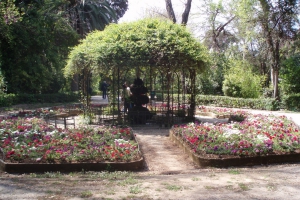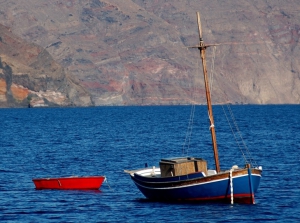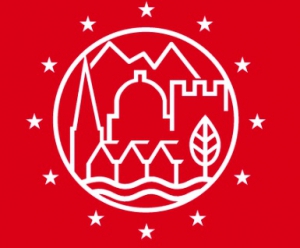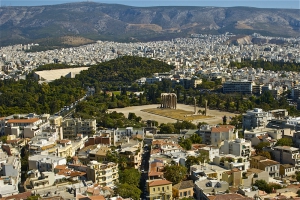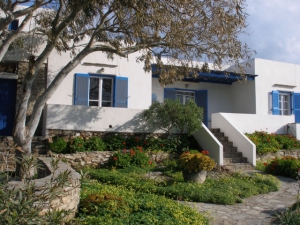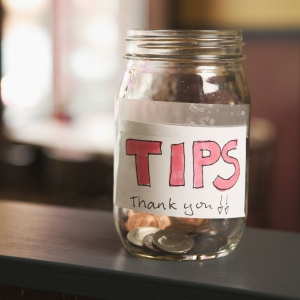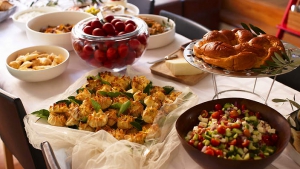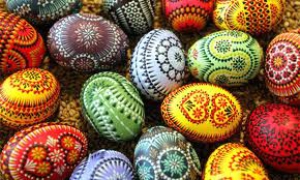ABOUT US
XpatAthens
Monday, 18 July 2016 07:00
10 Things You Must See In Athens With Your Family
Three moms who are passionate about Greece created Kids Love Greece and after extensive research in Athens, came up with their top list of things to do in the city with your family! There are many excellent options for families traveling to Athens, but they rounded up the best ones.
- Climb up the Acropolis, travel back to the Golden Age of Pericles, and discover the birthplace of Democracy.
- Find the Karyatides (which hold up the roof of the Parthenon) among the marvelous artifacts on exhibit at the Acropolis Museum.
- Run around the streets of Plaka and play with the knickknacks in the stores in Monastiraki.
- Watch the peacocks and the kri kri (Cretan Ibex) in the beautiful gardens of Zappeio.
- Visit all the amazing children’s museums – especially the Goulandris Museum of Natural History, which is full of dinosaurs.
- Get to know the dolphins and their fun-loving friends at the Attica Park Zoo.
To read the complete list, please visit: Kids Love Greece
Published in
Kids Life
Tagged under
Wednesday, 15 April 2015 10:25
Day Trips From Athens
Have you seen all the main sites in Athens and are looking to explore more a bit further out? Here are our favourite picks from our friend Matt Barrett's recommendations. All of the destinations can be reached in an hour or less from central Athens.
Rafina
One of my favorite places is Rafina on the other side of Mount Pendeli and Himitos. It's like driving to an island. Every year I visit Athens, whether it is summer or winter, I make a point to spend one afternoon in Rafina. If I can't get my family or friends to come I go alone. But it's almost like a pilgrimage for me. There are numerous restaurants that specialize in fried squid (kalamarakia), small fried fish(mareedes), shark with garlic sauce (galeos me skordaya) and other things from the sea. The most popular one is Agoni Grammi, the last one on the dock or the first one you come to when you get off the ferry. If you love fried fish, beer, ouzo, wine and afternoons where you can drink and relax and not worry about tonight or tomorrow, spend an afternoon in Rafina.
There are ferries going to the Cyclades and Evia, going in and out of the harbor and lots of fishing boats. It's just like being on an island. There is a long beach there that is usually only crowded on Sunday. The town itself has a few too many apartment buildings for my taste but the waterfront is nice. There is nothing like spending the day with some close friends, some fried fish and several bottles of ouzo. For more on Rafina, please click HERE.
Temple of Poseidon at Cape Sounion
The temple at Cape Sounion was the first and last sign of 'civilization' Athenian sailors would see to and from their journeys. It's a magnificent site on top of a hill on the tip of the Attika peninsula. Not a bad place to watch the sunset either after a late lunch at a beach side taverna and there are two pretty good ones right below the temple. The small beach has sea almost as clean as you will find on the islands. Its one of the nicest beaches within striking distance of Athens. For more on Cape Sounion, please click HERE.
Lavrion
Lavrion which is the closest town to Sounion, has a lively waterfront and town center full of restaurants, ouzeries, cafe-bars and a very nice fish market. In fact you should stop and see the Lavrion mineral museum as well as the ancient site of Lavrion which has one of the best ancient ampitheaters. If it were not for the silver mines of Lavrion the ancient Greeks would not have defeated the Persians in the battle of Salamis since that was how they were able to build their fleet. For more on Lavrion, please click HERE.
Marathon
Everyone has heard the story of the Persian defeat at Marathon at the hands of the Athenians. Imagine marching several thousand miles only to be wiped out 27 miles from the city you came to conquer by an army a fraction of your size. Marathon is an interesting place to visit. There is not much to see of the battlefield really. There is a burial mound in an olive grove and a plaque that commemorates the great victory and a nice statue. You are not supposed to climb up the mound but from the looks of the worn footpath many people do, including me. There is also the place where the race begins. The beach at Marathon is pretty nice and nearby Schinias is even better. But the most amazing thing about Marathon is the marble dam that holds the water that supplies Athens. It is the only marble dam in the world and it is quite spectacular. For more on Marathon, please click HERE.
Schinias
Schinias is the most beautiful beach in Attika. It is one of the few beaches that has a pine forest that comes right down to the sea and there are several fish tavernas which run on diesel generators since there is no electricity there. The sea is shallow, generally clean, and if you come in the off-season which means anytime but August and weekends in July, you may be surprised at how few people are here. Because it is shallow you don't need more than a few days of sunshine for it to be warm enough to swim and this is usually the first and last place I swim every year. For more on Schinias, please click HERE.
Vouliagmeni
Besides being somewhere to go for the day, Vouliagmeni is close enough to Athens so that you can stay on the beach and still get into the city to see the sites. Astir beach at Vouliagmeni is one of the nicest beaches near the city and it is one of the few beaches in the world that has the ruins of a temple, to Apollo, the Sun God, of course. You have to pay to get into the beach but once you get in there are umbrellas, cabanas to change, beach chairs and a bar and snack bar. For more on Vouliagmeni, please click HERE.
Rafina
One of my favorite places is Rafina on the other side of Mount Pendeli and Himitos. It's like driving to an island. Every year I visit Athens, whether it is summer or winter, I make a point to spend one afternoon in Rafina. If I can't get my family or friends to come I go alone. But it's almost like a pilgrimage for me. There are numerous restaurants that specialize in fried squid (kalamarakia), small fried fish(mareedes), shark with garlic sauce (galeos me skordaya) and other things from the sea. The most popular one is Agoni Grammi, the last one on the dock or the first one you come to when you get off the ferry. If you love fried fish, beer, ouzo, wine and afternoons where you can drink and relax and not worry about tonight or tomorrow, spend an afternoon in Rafina.
There are ferries going to the Cyclades and Evia, going in and out of the harbor and lots of fishing boats. It's just like being on an island. There is a long beach there that is usually only crowded on Sunday. The town itself has a few too many apartment buildings for my taste but the waterfront is nice. There is nothing like spending the day with some close friends, some fried fish and several bottles of ouzo. For more on Rafina, please click HERE.
Temple of Poseidon at Cape Sounion
The temple at Cape Sounion was the first and last sign of 'civilization' Athenian sailors would see to and from their journeys. It's a magnificent site on top of a hill on the tip of the Attika peninsula. Not a bad place to watch the sunset either after a late lunch at a beach side taverna and there are two pretty good ones right below the temple. The small beach has sea almost as clean as you will find on the islands. Its one of the nicest beaches within striking distance of Athens. For more on Cape Sounion, please click HERE.
Lavrion
Lavrion which is the closest town to Sounion, has a lively waterfront and town center full of restaurants, ouzeries, cafe-bars and a very nice fish market. In fact you should stop and see the Lavrion mineral museum as well as the ancient site of Lavrion which has one of the best ancient ampitheaters. If it were not for the silver mines of Lavrion the ancient Greeks would not have defeated the Persians in the battle of Salamis since that was how they were able to build their fleet. For more on Lavrion, please click HERE.
Marathon
Everyone has heard the story of the Persian defeat at Marathon at the hands of the Athenians. Imagine marching several thousand miles only to be wiped out 27 miles from the city you came to conquer by an army a fraction of your size. Marathon is an interesting place to visit. There is not much to see of the battlefield really. There is a burial mound in an olive grove and a plaque that commemorates the great victory and a nice statue. You are not supposed to climb up the mound but from the looks of the worn footpath many people do, including me. There is also the place where the race begins. The beach at Marathon is pretty nice and nearby Schinias is even better. But the most amazing thing about Marathon is the marble dam that holds the water that supplies Athens. It is the only marble dam in the world and it is quite spectacular. For more on Marathon, please click HERE.
Schinias
Schinias is the most beautiful beach in Attika. It is one of the few beaches that has a pine forest that comes right down to the sea and there are several fish tavernas which run on diesel generators since there is no electricity there. The sea is shallow, generally clean, and if you come in the off-season which means anytime but August and weekends in July, you may be surprised at how few people are here. Because it is shallow you don't need more than a few days of sunshine for it to be warm enough to swim and this is usually the first and last place I swim every year. For more on Schinias, please click HERE.
Vouliagmeni
Besides being somewhere to go for the day, Vouliagmeni is close enough to Athens so that you can stay on the beach and still get into the city to see the sites. Astir beach at Vouliagmeni is one of the nicest beaches near the city and it is one of the few beaches in the world that has the ruins of a temple, to Apollo, the Sun God, of course. You have to pay to get into the beach but once you get in there are umbrellas, cabanas to change, beach chairs and a bar and snack bar. For more on Vouliagmeni, please click HERE.
Porto Germenos
Porto Germanos is the best place to swim in Attika. The sea is postcard blue in color and the beach and town sit at the end of a large bay that faces west, with pine covered mountains on three sides. There is a modern looking town with houses and small apartment buildings, like condos, but the impression, at least in early May, is of a small coastal village somewhere more remote than Attika. If you have a free day and want to swim in the kind of sea you usually find in the Sporades, its worth the trip. But the most impressive part of Porto Germanos is the fortress and ruins of ancient Egosthena. The 4th Century BC fortress itself is the most impressive in Greece from that period with much of the walls and the towers still intact. For more on Porto Germenos, please click HERE.
Published in
City Discovery
Tagged under
Wednesday, 15 April 2015 09:56
Greece Wins Triple For Cultural Heritage At 2015 Europa Nostra Awards
Greece is one of the 28 award winners of the 2015 European Union Prize for Cultural Heritage/Europa Nostra Awards. The winners of the award, considered Europe’s most prestigious prize in the heritage field, were recently announced by the European Commission and Europa Nostra.
The 28 award winners, selected from 263 applications submitted by organizations and individuals from 29 countries, are honored for outstanding achievements in four categories: 1) Conservation, 2) Research and Digitization, 3) Dedicated Service to Heritage, and 4) Education, Training and Awareness-raising.
“This year’s winners are powerful examples of creativity and innovation at work for Europe’s cultural heritage”, said Plácido Domingo, President of Europa Nostra.
“They also demonstrate that heritage matters to Europe and its citizens. We trust that, under the leadership of President Juncker and Commissioner Navracsics, the European Union’s strategy for an integrated approach to cultural heritage will be further developed and implemented.”
Award for Conservation
Antouaniko Mansion in Chios
Award for Research and Digitization
HERMES: Hermoupolis Digital Heritage Management, Syros
Award for Research and Digitization
Restoration of Lasithi Plateau’s Windmills with Perforated Sails
“Cultural heritage is one of Europe’s biggest assets. It brings countless cultural, economic, social and environmental benefits to all of us”, said Tibor Navracsics, European Commissioner for Education, Culture, Youth and Sport.
“We all need to keep working together to help communities and citizens take ownership of our heritage, make it part of our daily lives and preserve it for the generations to come”.
To read the complete article please visit: GreekTravelPages
Published in
Greece In The News
Tagged under
Wednesday, 15 April 2015 09:40
Church Offers Property To Help Raise Funds For Debt
The head of Greece's Orthodox Church said on Saturday it was willing to put property it owns up for development to help raise money to repay the country's debt.
The Orthodox Church is a powerful institution in Greece and owns more land than anyone except the state, including prime real estate in Athens.
"Come, let's develop (the property) for Greece," Archbishop Ieronymos of Athens told Greek TV in an interview during the Greek Orthodox Easter holiday. "If needed by the state to cooperate, we're here."
Asked if the Church would consider selling off property, he said: "No, I would say let's work together and (the state can) use the revenues to repay all its debts ... but the plots of land will remain Greek, in Greek hands."
He did not say what kinds of business developments he had in mind.
It is unclear how much property the Church owns as its structure is decentralized and Greece has no central land registry.
To read more please visit: Reuters
The Orthodox Church is a powerful institution in Greece and owns more land than anyone except the state, including prime real estate in Athens.
"Come, let's develop (the property) for Greece," Archbishop Ieronymos of Athens told Greek TV in an interview during the Greek Orthodox Easter holiday. "If needed by the state to cooperate, we're here."
Asked if the Church would consider selling off property, he said: "No, I would say let's work together and (the state can) use the revenues to repay all its debts ... but the plots of land will remain Greek, in Greek hands."
He did not say what kinds of business developments he had in mind.
It is unclear how much property the Church owns as its structure is decentralized and Greece has no central land registry.
To read more please visit: Reuters
Published in
Local News
Tagged under
Thursday, 09 April 2015 12:41
Antiparos Beach Houses
Antiparos Beach Houses are two lovely adjacent houses on the picturesque Greek island of Antiparos. Situated on the beach, yet only a five-minute walk from the village, both houses are ideal for those seeking an easy and relaxing holiday. The houses have sea views and are set in a large 6000-square-metre garden with flowers, fig trees and olive trees. Just outside the garden gate is a long, sandy beach. Terraces are set up for outdoor eating and lounging. The village, and port, of Antiparos has shops and restaurants as well as a car-free meandering main street.
The houses are built in traditional Cycladic style, in white with stone walls. They are fully equipped and tastefully furnished. A baby bed is available. The houses can be rented separately or together.
Accommodation Beach House: Large living and dining room has a built-in double bed and sofas that can be used as another bed. There is an open kitchen with marble counters. The hall off the living/dining room leads to a recently refurbished shower room and spacious bedroom with three single beds (bunk bed, plus one). Both rooms open onto the terrace with views over the garden and sea. Sleeps 4-6.
Beach Duplex: Duplex with two large rooms, each of which has en suite shower room and kitchenette. The downstairs room has a double bed, while the upstairs has three single beds. Both levels have a terrace, with the one on the lower floor stretching into the garden and shaded by an attractive eucalyptus tree. Sleeps 5.
Published in
Antiparos
Tagged under
Tuesday, 23 May 2017 07:00
To Tip Or Not To Tip In Greece
I was asked by a visiting friend “How much do I tip the waiter?” The rest of us looked at each other and smiled – this is a favourite topic of conversation and debate… My group of friends is from all over – Greece, France, Canada, Argentina, America, etc. – each with a different perspective on tipping etiquette. From my own ‘let’s leave 15%’, to someone else’s ‘don’t leave anything’, and the natural questions of most visitors, I’m often left wondering what’s the right thing to do in Greece.
I read a recent blog in the Economist about tipping rules for hospitality services in the US – and I nearly fell off my chair. According to the piece, the ‘Gratuity Guide’ of the American Hotel & Lodging Association suggests up to $2 per person for the driver of the shuttle bus from the airport to the hotel; up to $5 per bag for porters; door staff should get up to $2 for hailing a taxi from the queue outside; and housekeeping should be left up to $5 a night. The lucky concierge should get $5 for making a restaurant reservation and $10 if he has something more difficult to do, like find a tricky theatre ticket. This 'culture of tipping' is being questioned in parts of the US, where a number of restaurants have started to apply a 'no tips' policy.
So, I’ve suddenly paid more in tips than I have for my hotel room. What are the comparative ‘rules’ for Greece?
According to WhoToTip.net: In Greece, it is customary to tip the porter/bellboy, around €1 per bag. Tip the housekeeper €1 per day, leaving the tip on the bedside table or bed. You can tip the concierge a few Euros if he provides excellent service. In restaurants, tipping is expected for good service, especially if you are a tourist. Some restaurants in Greece will round up the bill, so you should check this before tipping. You can tip between 5% and 10% and you should leave the tip on the table, give it to the waiter directly, or tell the waiter you don’t want change. In some restaurants, the owner does not allow their staff to keep the tips. You may want to ask if this is the case, because if they don’t, you are just paying more for your meal. Taxis don't expect a tip, but you may round up the fare (+/- 5%) if you wish.
And so on… So many rules that I wasn’t aware of…! My Greek friends say “Bah, round up the bill or leave a couple euros for good service – that’s all you need to know.” (Then again, is it great service when they ask you 10 times if you need something else, or when they leave you to enjoy your coffee in peace??)
In the end, I think that tipping is a personal choice – but one that I always encourage. Especially in a city like Athens that should know how to treat visitors, to provide good customer service, and a culture that apparently dishes out ‘filoxenia’ as second nature. When someone gets it really right, I am generous. What’s more, a generous tip normally comes with my verbal appreciation of their great service – as in “We really appreciated your great service today – you were great.” Maybe this is more valuable than one or two euros, and encourages more of the same? Perhaps. In any case, I tend to fall on the side of generosity, and put it in the category of ‘karma’… ;)
So, tip or don’t tip, but do show appreciation for someone who goes beyond their sub-minimum-wage job description to make your hour-long coffee stop more pleasant.
Until next week,
Jack
The Economist – Gratuitous Expense
WhoToTip.net – Tipping in Greece
Published in
My Week In Athens
Tagged under
Tuesday, 15 April 2025 07:00
Greek Easter Eggs
Dyeing red Easter eggs is a symbol of Orthodox Easter and a long-standing tradition. Although it is also quite common to dye eggs in other colors, Greek Easter is rarely or almost never celebrated without red eggs!
The tradition of cracking red eggs when the clock strikes midnight into Easter Sunday symbolizes new life, much like when a chick cracks its shell and comes to life. The egg-cracking game or "tsougrisma" as it is called in Greece is an integral part of Easter celebrations and the person with the strongest egg is said they will have good luck for the whole year!
Since Greek Easter eggs are not just for celebration purposes, but are also meant to be eaten, here are 4 simple tips for vibrant and perfectly cooked Easter eggs:
1. Leave the eggs out of the fridge for at least 3 hours before boiling them.
2. Boil the eggs in cold water–if you place the eggs in boiling water their shells are more than likely to crack.
3. Keep in mind that fresh eggs are less likely to crack, but will be a bit more difficult to peel.
4. Add a pinch of salt in the water; this will help prevent your eggs from cracking while boiling and make them easier to peel.
Published in
Greek Traditions
Tagged under
Tuesday, 06 March 2018 07:00
How To Host A Traditional Greek Easter Feast
Easter in Greece is one of, if not the biggest holiday on the calendar. This means lots of family and friends, and lots of delicious traditions in the kitchen. We love this article from Delish where chef and successful New York restaurateur Michael Psilakis gives us his 'how to's' for a perfect and traditional Greek Easter feast!
Psilakis grew up with old-country influences as a first-generation Greek American. "Greek was my first language. I grew up just like My Big Fat Greek Wedding," says Psilakis. "That was my life, and everything we do (and did) revolves around the pride that my parents instilled in me."
Always on the menu: a special soup made from a lemon and egg sauce with plump dumplings of lamb meat braised in a liquid for over two hours. Following the special soup was the real star: a whole spit-roasted lamb. When Psilakis was a kid, his father built a "temple," as he calls it, in the backyard specifically for roasting whole animals on a spit. "We roasted 20-30 animals a year!" remembers Psilakis. Early in the morning on the day after Easter, he and his father would prepare for the Olympic day of eating by hoisting the lamb on the spit. After rotating for hours over a hot flame, the tender meat was ready for the oversized group of family and friends to descend, sticking forks into the lamb and eating it right off the spit.
Everything on the Easter menu is served family-style, including a big salad with lemony dressing and moussaka — lightly fried eggplant and zucchini layered with potatoes and lamb and topped with béchamel, all sopped up with the soft and sweet Easter bread. (If you don't have time to bake, many bakeries sell Easter bread during the holiday.) But the most important item on the table: red-dyed eggs.
Duplicating a feast equal in magnitude to this one may be a bit challenging without a roasting shrine and a team of family members to help out with all the dirty work. No worries: Chef Psilakis shares a few of his classic recipes that are robust, toothsome, and easy enough to prepare at home.
Psilakis' Recipes
Meze
Main Dish: Arni Sto Fourno
Side Dish: Moussaka
Dessert: Galaktoboureko
1. Don't get overwhelmed.
2. Get organized!
3. Remember the reason you're there.
To read this article in full, please visit delish.com
Published in
Greek Food & Diet
Tagged under
Tuesday, 15 April 2025 07:00
Holy Week & Greek Easter Traditions
For Greeks, Easter is the biggest religious holiday of the year. Although many of the celebrations have roots in pre-Christian times - the Elysian mysteries in ancient Greece were also a celebration of rebirth after death when in winter everything dies and in spring they're born again - today in Greece, Easter celebrations have a direct connection with the Orthodox faith.
Preparation for Easter begins with Kathara Deutera (Clean Monday), which is the first day of lent. During lent, which lasts for forty days before Easter, one is not supposed to eat anything that comes from animals with blood in its veins. Basically, that means no meat, fish, milk, cheese, and egg. Lobster and caviar are fine, as are ouzo and tsipouro!
Preparation for Easter begins with Kathara Deutera (Clean Monday), which is the first day of lent. During lent, which lasts for forty days before Easter, one is not supposed to eat anything that comes from animals with blood in its veins. Basically, that means no meat, fish, milk, cheese, and egg. Lobster and caviar are fine, as are ouzo and tsipouro!
Not many people follow lent too strictly until Greek Easter, although it is common to quit for instance only meat or cheese, or maybe chocolate or wine - essentially give up something that is not very good for your health. Restaurants and fast food shops will normally have special menus during this time of the year, for everyone who does follow Lent.
The big week, or as it is known in Greek 'Megali Evdomada,' is the week from Palm Sunday to Easter Sunday. Despite it being an ordinary work week, shops have special hours, there are church services every evening, and many people clean and prepare their homes in preparation for the big feast of Easter Sunday.
Holy Week is essentially a revival of Jesus´ last days when the Orthodox Church relives the last week of the life of Jesus. On Thursday Greek Easter bread called tsoureki is baked and the traditional red Easter eggs are dyed. On Good Friday you´ll hear the church bells ring all day for the funeral of Christ. The Bible said that he died in the ninth hour, and at nine o´clock Greeks follow a symbolic funeral procession. Many people participate in the quiet procession while carrying candles and the experience overall is quite solemn.
Holy Week is essentially a revival of Jesus´ last days when the Orthodox Church relives the last week of the life of Jesus. On Thursday Greek Easter bread called tsoureki is baked and the traditional red Easter eggs are dyed. On Good Friday you´ll hear the church bells ring all day for the funeral of Christ. The Bible said that he died in the ninth hour, and at nine o´clock Greeks follow a symbolic funeral procession. Many people participate in the quiet procession while carrying candles and the experience overall is quite solemn.
Saturday is the last day of lent and it is filled with preparations for the midnight meal, including a traditional soup called magiritsa. Just before midnight on Saturday everyone gathers at church with their Easter candles (or 'lambades' in Greek). Be there early in the evening if you want to be sure to get in, although there will be many people outside the church in the courtyard and on the street.
And then the big moment! Just before midnight, all the lights are switched off, as a symbol of Jesus' descending to the kingdom of death, and a moment later the priest announces 'Christos Anesti,' or Christ Has Risen. People start cheering, greeting, and kissing each other, and many fireworks go off.
Everyone carries candles with them to be lit by the priest's candle which represents the 'holy flame.' The tradition is that representatives from the Greek Orthodox church have transported to Greece a candle lit by the eternal burning flame at the Church of the Holy Grave in Jerusalem, and the flame is spread from candle to candle all over Greece.
Each person carefully carries their lit candle home in order to bless their home by drawing a cross with the flame above the entrance for protection from all evil. Many Greek homes will keep the flame burning in a traditional 'kandili' until the following Easter.
And then the feast begins! The 'tsougrisma' game begins when people break each others´ red eggs by hitting them against each other. The one with the strongest egg is said the have good luck for the whole year! The traditional saying is 'You close your mouth with an egg when lent starts and open it with an egg when it finishes.'
The first meal after lent is usually the traditional Easter soup called magiritsa, eaten after church on Saturday night. After the midnight meal, anyone who has the energy goes out to party until the next day...
On Easter Sunday, family and friends gather for a big Easter meal, which typically includes roasted lamb, loads of different salads, and mezedakia. On Easter Sunday, there is a scent of spring and delicious food across the entire country!
Wishing everyone a Happy Easter!
Published in
Greek Traditions
Tagged under
Monday, 15 April 2019 07:00
Easter Shop Hours In Athens - 2019
Greek Orthodox Easter is celebrated this year on Sunday April 28th, 2019. According to the Athens Commercial Association (ESA), the extended holiday shopping hours for Athens will start on April 18th.
Below are the recommmended shopping hours during the Easter holidays in Athens.
2019 Easter Shopping Hours
Thursday, 18 April – 09:00 to 21:00
Friday, 19 April – 09:00 to 21:00
Saturday, 20 April – 09:00 to 18:00
Sunday, 21 April – 11:00 to 18:00
Easter Week
Friday, 19 April – 09:00 to 21:00
Saturday, 20 April – 09:00 to 18:00
Sunday, 21 April – 11:00 to 18:00
Easter Week
Monday, 22 April – 09:00 to 21:00
Tuesday, 23 April – 09:00 to 21:00
Wednesday, 24 April – 09:00 to 21:00
Thursday, 25 April – 09:00 to 21:00
Friday, 26 April – 13:00 to 19:00
Saturday 27 April – 09:00 to 15:00
On Monday 29 April 2019 all stores will remain closed.
Published in
Local News
Tagged under

